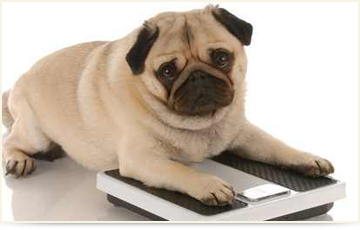

Puppy food contains more calories than adult food because it is designed to promote growth and development. Puppies should have a different diet from older dogs. Not switching Your Dog’s Food With AgeĪs dogs get older, they have different nutritional requirements. Take care to control portion sizes, limit treats and snacks, and pay attention to feeding guidelines to make sure you’re not giving your dog too much food. Just like humans, dogs will gain weight if they eat too much. These include: Feeding your dog too much food

If you find yourself saying, ‘My dog is gaining weight for no reason’ or ‘My dog keeps gaining weight’ there are multiple non-medical reasons why dogs put on weight. Other Common Reasons Your Dog is Getting Fat Usually you will see this in puppies with underdeveloped immune systems. This is typically associated with parasites that find themselves in the abdominal walls and intestines. Parasites can often cause a "potbelly" looking appearance due to an excessive build up of fluids near the area of infestations. “If a veterinarian sees negative side effects, they should look for alternative modes of therapy or different philosophy of care, such as Traditional Chinese Veterinary Medicine,” Selmer says. The solution? If your dog is gaining weight due to medication, your vet might look into switching to a different drug or trying a different approach. “For example, Prednisone can cause weight gain because it mimics Cushing’s disease when given for too long or in too high dosages,” Selmer explains. Cause #3: Prescription DrugsĪ number of prescription drugs can cause weight gain, especially if given for long periods of time. “This in turn makes the belly expand and looks like the animal has gained weight.” This is dangerous because diseases that can cause dogs to look like they gained weight can be life threatening or life shortening, Selmer explains. “For example, with heart disease, a dog’s heart is not functioning properly to effectively pump blood through the body-this causes fluid to leak through vessels and into the abdomen and/or the chest,” according to Selmer. Other health issues, including heart disease and cancer, can also cause bloating.
#RAPID WEIGHT LOSS IN DOG TREATMENT SKIN#
“With Cushing’s disease, dogs lose muscle mass, which means the scale often stays the same but you will see a skinny dog with a big potbelly who is losing hair.” A dog suffering from Cushing’s disease may also exhibit skin problems, be thirsty and urinate excessively. “This might not always translate into a real larger number on the scale but the dog will appear bigger,” Selmer says. Cause #2: Heart Disease and Water RetentionĬushing’s disease-an endocrine disorder that causes an increase in cortisol production-can cause weight gain due to bloating. “Even if a dog has hypothyroidism and its owner cuts calories, the dog will still gain weight since food is not the cause of the weight gain,” Selmer explains. Hypothyroidism slows down the entire metabolism, which in turn leads to weight gain.

“When there is decreased thyroid function, that’s when pets gain weight.” Michel Selmer, DVM, from the Advanced Animal Care Center in Huntington Station, New York. “You can loosely associate hypothyroidism with the furnace of the pet’s body not burning hot enough,” explains Dr. Hypothyroidism is a condition in which the thyroid gland doesn't produce enough thyroid hormone. If you’re asking yourself, ‘Why is my dog gaining weight so fast?’ here are some possible medical causes: Cause #1: Undiagnosed Hypothyroidism 4 Non-Diet (Medical) Reasons Your Dog Might be Gaining Weight There are several reasons why dogs put on weight, which we’ll explore in detail in this guide. If your dog is gaining weight, and you’re not sure why, it’s natural to be worried and anxious.


 0 kommentar(er)
0 kommentar(er)
